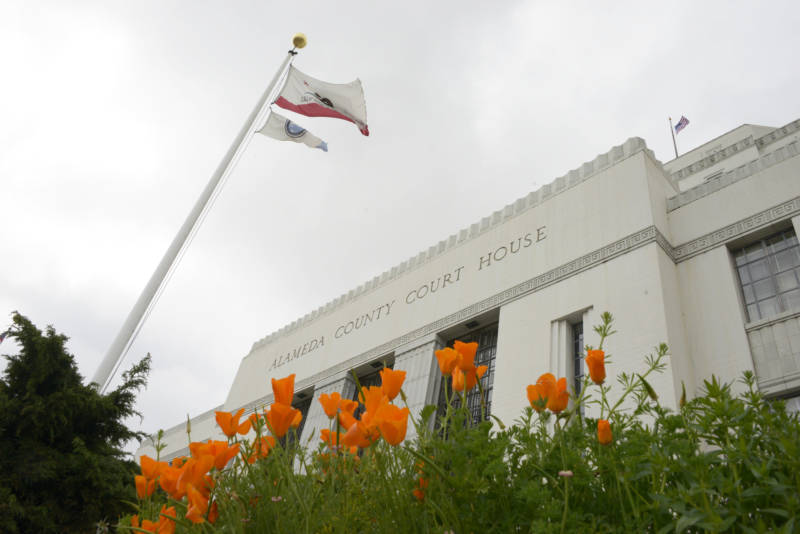It was a tetchy day in court as prosecutors strenuously objected to Evans’ testimony on the grounds of hearsay, and for most of the morning successfully prevented her from telling jurors what she overheard. But when Alameda County prosecutor Casey Bates played a recording of Evans giving investigators an earlier statement (in an effort to highlight inconsistencies in her accounts), it opened the door for defense attorney Tony Serra to ask about what else she said in the interview.
During cross-examination, prosecutors drew attention to Evans' differing explanations of why she was in the area that night and questioned why she didn’t go to one of several taco trucks closer to her church. The prosecution also asked what time she noticed smoke, and Evans said 9:30 p.m. or 9:45 p.m., well before the fire is known to have started.
In comments to reporters outside the courthouse, Serra said Evans "embodies our defense."
Evans was one of the first witnesses called by counsel for Max Harris, who along with Derick Almena faces 36 counts of involuntary manslaughter. Prosecutors say Almena and Harris built and operated the unpermitted Fruitvale district residence and event venue with willful disregard for safety, making them criminally responsible for the fire.
The defense argues the fire resulted not from their clients' actions or negligence, but from an act of arson, and have attempted to shift blame to the government officials who visited the warehouse without flagging unsafe conditions.
The defense also called Michael Russell, who paid $400 a month to live in an Airstream trailer inside the warehouse. Russell said the trailer did not contain gasoline or propane. The night of the fire he said was in the trailer when he overheard a "scuffle" downstairs and saw two to three men fleeing the building as it filled with smoke.
"At first I thought it was a standard fight," he recalled. "Then I heard someone yell, 'Fire!'"
As Russell rushed towards the front door, he said, he passed a woman in a red beanie and green dress at the foot of the staircase shouting, "Don't come down the stairs, there's a fire, this is the will of the spirit of the forest."
Russell also testified that he felt safe in the warehouse, calling descriptions of the shoddily constructed staircase overstated, but said that the rear staircase would be difficult to find for people who didn't already know it was there.
Asked if the tenants made decisions collectively, Russell said Almena was "definitely in charge in many ways," describing him as being at the top of the warehouse hierarchy, with Harris acting as second-in-command.
Russell said he is a plaintiff in a civil lawsuit against Pacific Gas & Electric and the City of Oakland, among other entities, but that it does not name Almena or Harris as defendants.

